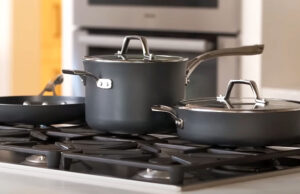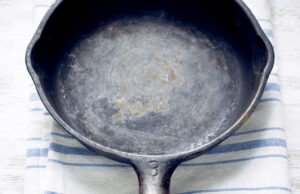When winter rolls around, the idea of using your oven to heat up the house might sound tempting. After all, it’s already working hard to cook your meals, so why not let it help warm up your home a bit too? But is it really a good idea to leave your oven door open for heat? In this article, we’ll explore everything you need to know about using your oven for extra warmth, including the risks and best practices. Let’s dive in!
How Using an Oven for Heat Works
It’s no surprise that ovens generate heat when in use. Whether you’re baking, roasting, or broiling, they naturally release warmth into the surrounding space. But is it safe to open the oven door to let that heat flow into the room?
The idea of using an oven to heat your home can seem like a quick and easy solution during cold weather, especially if you don’t have central heating or your heater isn’t working properly. However, there are several factors to consider before you decide to leave your oven door open.
When you open the oven door, heat starts to escape into the room. This can be effective in warming up a small space, particularly in the kitchen or nearby areas. The warmth is generated by the hot air circulating inside the oven as well as the heat emitted from the oven walls. The oven’s heat source—usually an electric coil or gas flame—works by creating intense heat that radiates out, making the oven quite effective at raising the temperature of a room.
However, the effectiveness of using your oven in this way depends on the type of oven you have and how well your home retains heat. An oven may not be the most efficient way to heat your home compared to central heating, space heaters, or even using your stove. In the next section, we’ll look at some important things to keep in mind before using your oven for heating purposes.
The Risks of Leaving Your Oven Door Open
While the idea of using your oven for heat might seem like a simple solution, it’s important to understand the potential risks that come with it. Leaving the oven door open can actually be quite dangerous in several situations. Let’s look at some of the main risks to consider before you try this method.
Fire Hazard
The most significant risk associated with leaving your oven door open is the increased chance of a fire. The heating element inside the oven, whether electric or gas, can become extremely hot. If the oven is left open, especially if you’re cooking something inside, it can lead to a buildup of heat in the surrounding area, increasing the chances of igniting nearby objects, such as paper towels, dishcloths, or other combustible materials. A kitchen fire can spread quickly, and in the worst-case scenario, it can cause significant damage to your home.
Additionally, when the oven door is open, the heating element is more exposed to potential hazards. For example, if something is accidentally knocked into the oven or falls onto the coils, it could spark and start a fire. So, always keep an eye on anything nearby and make sure the oven is clean from any items that could catch fire.
Poor Air Quality and Ventilation
Another risk of leaving your oven door open is the potential for poor air quality inside your home. When you use an oven, especially a gas oven, it can release carbon monoxide—a colorless, odorless gas that can be harmful to your health if it builds up in an enclosed space. Carbon monoxide poisoning can cause symptoms like headaches, dizziness, nausea, and even unconsciousness in extreme cases.
Even with an electric oven, there’s still a risk of poor air quality. If the oven is left on for an extended period, the warm air can become stuffy, making it harder to breathe comfortably. It’s important to ensure that your kitchen is well-ventilated if you decide to use the oven for heating, either by opening a window or turning on an exhaust fan.
Energy Inefficiency
Another downside of using your oven for heating is that it’s not an energy-efficient method. Ovens are designed to cook food, not heat large spaces. They consume a lot of energy to maintain high temperatures, and if you’re using it to warm up your home, you may notice that your energy bills increase as a result. It’s important to keep in mind that while the oven might heat up a small area, it’s not the most effective or sustainable way to warm a room. More energy-efficient heating methods include space heaters, electric blankets, or even a well-insulated home.
Risk of Overheating
If your oven is used for an extended period with the door open, the heat can become overwhelming. Kitchens and nearby rooms can quickly become uncomfortably warm, which can make it difficult to maintain a comfortable temperature in the house. If your home doesn’t have good ventilation, the heat can quickly build up, creating an unsafe living environment.
It’s essential to keep the oven door closed when you’re not using it for cooking to avoid overtaxing your home’s temperature control. You also risk damaging the oven’s internal components if it’s consistently running for long periods at high temperatures without serving its main purpose—cooking food.
Using your oven for heat might seem like a quick and easy solution, but it comes with significant risks that should not be overlooked. The potential fire hazard, carbon monoxide exposure, energy inefficiency, and the possibility of overheating make it a less-than-ideal choice for warming up your home. Instead, consider safer alternatives like a space heater or central heating, which are designed to provide heat more effectively and efficiently.
Final Thoughts
I hope this article helped you understand the risks and limitations of using your oven for heat. While it might seem like a good idea in a pinch, it’s important to stay safe and avoid potential hazards. Always consider alternative, safer methods of heating your home, and remember to prioritize your safety and comfort.
Frequently Asked Questions
Is it safe to leave the oven door open for heat?
Leaving the oven door open for heat can be dangerous due to fire risks, poor ventilation, and the possibility of carbon monoxide poisoning. It’s best to explore safer alternatives.
Can an oven heat an entire room effectively?
An oven is not an efficient or effective way to heat an entire room. It’s designed to cook food, not heat large spaces, so it can be an energy-wasting solution.
Do I need to worry about carbon monoxide when leaving the oven door open?
Yes, especially if you’re using a gas oven. Carbon monoxide is a dangerous gas that can build up in an enclosed space and be harmful to your health.
Can I leave the oven door open overnight to warm the house?
It is not recommended to leave your oven on overnight. The risk of fire, carbon monoxide poisoning, and overheating your home outweigh any potential benefits.
Is it a good idea to use the oven for extra heat during winter?
Using an oven for heat can be dangerous and inefficient. It’s better to rely on safer, more effective heating solutions such as space heaters or central heating.
Can an electric oven be used for heating a room?
While an electric oven can release heat, it’s not designed to heat a room. It’s more energy-efficient and safer to use other heating methods like electric heaters.
Do I risk damaging my oven by leaving the door open?
Yes, leaving the door open for extended periods could strain the oven’s components and reduce its lifespan. It also increases the risk of a fire.
Can I use the oven to heat my kitchen safely?
If you choose to use the oven for extra heat, make sure the area is well-ventilated, and you are constantly monitoring the oven for safety. Avoid leaving the door open for long periods.



